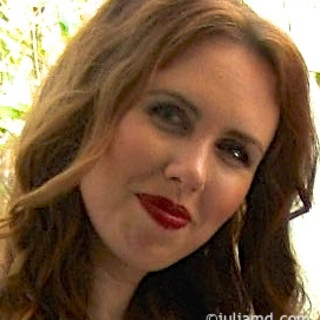
The pediatric emergency department on a winter night often sounds like San Francisco’s Pier 39: a chorus of barking seals. Croup has a penchant for the midnight hours, bringing bleary-eyed parents and their noisy-breathing toddlers en masse.
Parents familiar with this common illness come in for a dose of steroid, eager to return home for a more restful night. But some are new to croup and thus don’t recognize its classic sound. So before they come to us, they consult Google.
“I think he has dry drowning,” the mother informed me, her voice resolute. The child sat beside her — febrile, congested, and barking away. “He went swimming two days ago and she was fine until tonight when he woke up struggling to breathe.”
The dry drowning paranoia was not new to me — it has brought in anxious families in for years, scared by Facebook threads. With some time to build trust, address worries, and dispel the myths of dry drowning, I’ve been able to calm most parents’ alarm.
But this mother was not buying it. She had a counterpoint for each of my explanations. Despite 30 minutes of discussion, using every communication trick I knew, she was unconvinced. The internet had already told her otherwise. Her child just had a classic case of croup days after an incidental, regular, old’ dip in the recreation center pool, but nothing I said could assure her he hadn’t dry drowned. I left the exam room demoralized — and impressed by the power and influence of the internet.
It seems that lately, we spend more of our time working to prove to patients that our counsel, informed by years of rigorous medical training, should be trusted more than their cousin’s Facebook post, a random Wikipedia page, or a stranger’s Instagram feed. I never mind patients asking questions, wanting to see the research themselves, or pushing for more evidence related to their illness. But it becomes exhausting when all your recommendations are countered by unconfirmed internet rumors.
As physicians, we want to help people and have studied for years to be able to just that. While we need to be mindful of our limits and always push ourselves to learn more, we also want our expertise to be trusted and respected. When it’s constantly questioned using unreliable sources, we soon become frustrated and subsequently burn out. We begin to wonder why our patients even come to us if they are going to listen to Dr. Google instead. Clearly, the internet is a resource all of our patients use. It has crept into our practices, fostering confusion and distrust in the doctor-patient relationship.
While the internet may be the source of our frustration, it can also become our solution. We need to use it to reclaim our role as experts, not just in the exam room, but online. For too long, physicians have been wary of venturing online. Many feel uncomfortable, unsure how to write for a lay audience, worried they will be attacked by anti-vaxx trolls, seen with disdain by their academic colleagues for writing that is not “serious” enough for medicine. Others worry they will be seen as giving specific medical advice, violate HIPAA, or hurt their professional reputations.
But in our absence, we have let others fill the web’s health space and it has become crowded with quacks, self-proclaimed experts, and money-seekers who use fear, flash, and falsehoods to generate clicks, money, fame, and virality. The actual reliable medical information existing online is often dull and technical, appearing far down the page of Google search results.
It’s time to bring our communication out of our clinics, operating rooms, and emergency departments. Our roles have always included teaching, communicating and promoting of preventative and public health; we just need to update these skills for the modern era. We must flood the internet with engaging, evidence-based health content.
The time is ripe, as many platforms such as Pinterest and Facebook are moving to manage the quality and accuracy of their health information, and more physicians than ever are blogging, Tweeting, podcasting and organizing through efforts such as #SoMeDocs.
If we do this, perhaps the next mom of a croupy child searching online at 1 a.m. for answers won’t find sensationalist dry drowning stories, and will instead find helpful home care suggestions for croup — like a steamy shower and then a stroll in cool air — from a board-certified pediatrician, videos by a respiratory therapist explaining signs of worrisome respiratory distress, and myth-busting articles about dry drowning from thoughtful physician-writers. Then, instead of stress and misinformation, the internet may bring calm and reassurance to patients, parents, and doctors alike.
Julia Michie Bruckner, MD, MPH is a pediatrician, mother, survivor of recurrent cancer, writer and 2018-2019 Doximity Author. You can find her at www.juliamd.com and @JuliaMDWriter.






